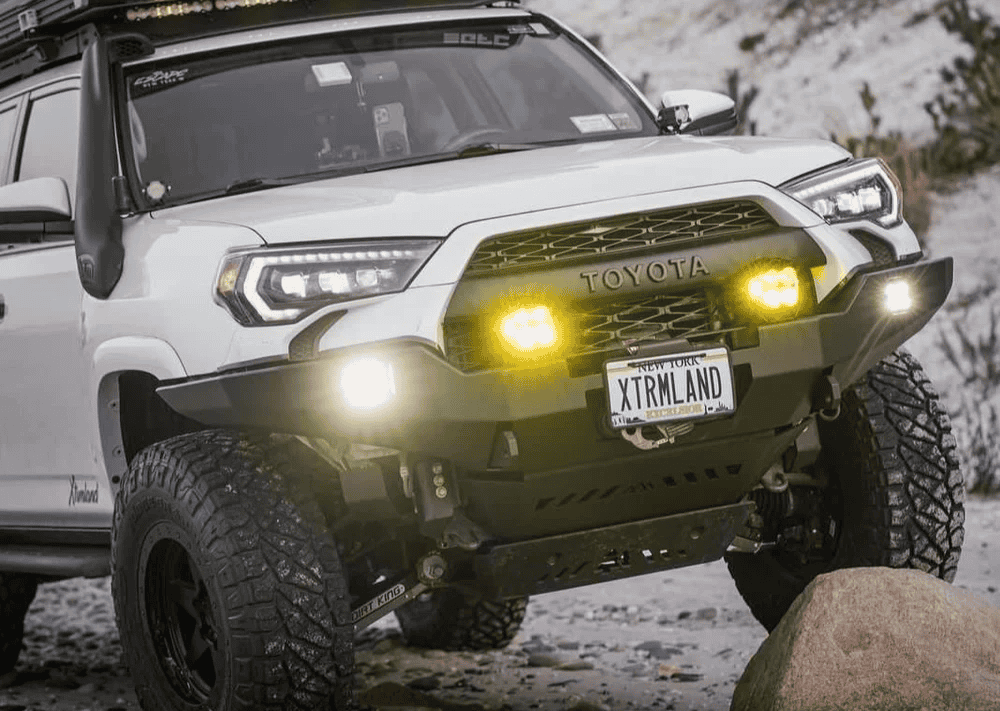Overland Vehicles

A custom 4WD rig builder translates use case into hardware. That starts with understanding where you drive, how far you travel between fuel stops, and what you carry. Desert tracks reward cooling upgrades, long range fuel strategy, and dust control. Alpine routes push gearing, traction aids, and brake performance. Coastal sand calls for flotation from proper tire sizing and air down systems with fast refill capability.
The platform decision shapes everything that follows. Wheelbase influences ramp breakover and cargo length. Payload ratings govern realistic build weight, including water, fuel, spare parts, and tools. Modern drivetrains demand careful calibration when adding larger tires and armor to keep transmission temps and shift logic happy. The best builders plan around weight distribution so handling stays predictable when tanks are full or empty.
A thorough assessment checks frame condition, axle capacities, cooling headroom, alternator output, and electronic stability thresholds. Serviceability matters in remote travel, so part availability and known failure points influence the platform call. Before any bolt turns, a builder should run a load map that totals static and dynamic weight and assigns it to corners to prevent sag or tail heavy behavior.
Tire diameter and actual loaded weight drive the gear ratio choice. Proper ratios restore torque at crawl speeds and keep highway rpm in the engine’s sweet spot. Selectable lockers provide controlled traction without binding during tight turns. Builders often add upgraded axle shafts, differential covers, and breather routing to survive sustained heat and water crossings. A well integrated winch demands correct line rating, fairlead alignment, secure wiring, and recovery points tied into the frame.
Fabrication quality separates a shiny build from a dependable one. Armor should spread impact loads into strong structure, not just bolt to thin sheet. Skid systems need service access for fluids and drain points. Rock sliders double as jacking points when they tie back to the frame with triangulated brackets. Roof and bed racks must be rated for dynamic loads, not only static camp use.
Electrical planning turns a good rig into a great one. A clean dual battery or lithium house system powers fridges, lights, air compressors, and comms without risking the starter battery. Builders size alternator charging, solar input, and DC to DC charging so recovery from cloudy days is predictable. Wire management, fuse labeling, and waterproof connectors prevent gremlins. Lighting should prioritize usable beam patterns and reduce glare back into the cab.
Suspension tuning is more than bolting on taller springs. Spring rates must match actual loaded weight. Damping controls body motion over corrugations and loaded cornering. Long travel or corrected geometry components preserve alignment through the arc of motion. Steering upgrades like high steer arms, stronger tie rods, and a tuned damper keep feedback clean. After any suspension change, the builder should align for caster that balances highway stability with steering feel on technical trails.
Clear scopes avoid surprise costs. A good estimate lists parts, labor, and alignment or calibration time. Timelines account for powder coat, lead times, and retorque sessions after shakedowns. Reputable builders document torque specs, wire schematics, and maintenance intervals so the rig is easy to service on the road.
When vetting a shop, look for process. Do they weigh the rig corner by corner. Do they road test, then trail test, and retorque after heat cycles. Do they photograph routing and provide a component list with part numbers. Ask how they balance ride quality with payload and what they do to mitigate heat, dust, and water intrusion for your environment. A credible builder speaks plainly about tradeoffs and shows past work that mirrors your goals.
A strong finish includes recovery training and tool loadout coaching. Even the best rig fails without the right tire pressures, spares, and safe recovery techniques. Expect a handoff that covers air system operation, compressor duty cycles, winch use, and electrical resets. The difference between a parts list and a purpose built rig is testing and education.
As you research, keep a short list of must haves and nice to haves, then share honest numbers for payload and trip length. The more accurate the inputs, the better the outcome. A custom 4WD rig builder should operate like a guide, translating your trips into reliable systems, not just accessories.
If you are mapping a vehicle around backcountry travel, take a look at our overland rigs to see how we approach range, payload, and comfort as a single system. Our team designs and installs complete packages and partial upgrades with the same focus on testing and clean execution. See the way we stage armor, suspension, and power systems in our custom overland upfit process, then learn how we communicate and deliver at why choose OZK Customs.
We listen first, build second. You bring the route and the payload, we bring the planning, fabrication, and trail testing that turns a concept into a capable rig. Tell us how you travel and we will tailor driveline, suspension, armor, and power so the vehicle feels calm on washboard and confident on technical climbs.
Submit the form with your terrain, range targets, and timing. We will reply with a clear path, an honest scope, and a build that is ready to roll.
Ready for a purpose built overland rig that fits your routes, payload, and comfort needs? Tell us your terrain and timeline, and the OZK team will spec, build, and trail test a solution that feels dialed from day one. Submit the form and let’s map your build.
ADDRESS:
6159 E Huntsville Rd, Fayetteville, AR 72701
PHONE:
(479) 326-9200
EMAIL:
info@ozkvans.com